Introduction
Acquired Immune Deficiency Syndrome (AIDS) is a chronic, potentially life-threatening condition that develops from infection with by the human immunodeficiency virus (HIV), which damages the immune system and disables the body's ability to defend itself against other diseases, including infections and certain cancers. These diseases which would cause few, if any, symptoms in people with healthy immune system, destroys health and life.
Causes of HIV/AIDS
HIV is most often sexually transmitted and can be spread by direct contact with contaminated body fluids, such as blood, semen, vaginal secretions and from mother to child during pregnancy or delivery or through breastfeeding.
Tests and diagnosis
A laboratory blood test is important to give accurate diagnosis of HIV infection. Unfortunately, these types of HIV tests aren't accurate immediately after infection because it takes time for your body to develop these antibodies - usually up to 12 weeks. In rare cases, it can take up to six months for an HIV antibody test to become positive.
Other tests checks for HIV antigen, a protein produced by the virus immediately after infection. This test can confirm a diagnosis within days of infection. An earlier diagnosis may prompt people to take extra precautions to prevent transmission of the virus to others.
Treatment and Management
Although there is no cure for HIV infection, there are medications treatments that can be used to control the virus and significantly slow the progression of the disease, reduce complications and alleviate pain. The standard treatment for suppressing HIV infection is called highly active antiretroviral therapy, which combines three or more antiretroviral drugs.
Besides Antiretroviral treatment, Nutrition Management is also very important during treatment and management of HIV/AIDS. Early treatment of infection is important to maintain body weight. If infection persists and cannot be cured by nutritional management within a couple of days, advice and treatment should be sought from a doctor, nutritionist, nurse or local health worker.
Nutrition in HIV infection
Good nutrition practices play an important role in maintaining a healthy lifestyle and healthy body. An HIV-infected person already has a weakened immune system. A nutritious diet can help maintain the proper functioning of the immune system and provided needed energy, protein, and micronutrient during all stages of the HIV infection.
Maintaining adequate nutritional status means consuming a variety and adequate quantity of foods to meet energy, protein and micronutrient needs.
Why is good nutrition important in HIV?
- Help you resist infections and reduces their frequency and duration
- Helps you look well and maintain healthy weight
- Helps you gain strength and maintain muscle, hence continue physical activity and be productive.
- Helps your body work use medication effectively and may reduce side effects
- Good nutrition helps the body process the many medications taken by people with HIV.
Nutrition Management for HIV positive
Nutrition is important for everyone because food gives our bodies the nutrients they need to stay healthy, grow, and work properly. The main types of foods people need to live a healthy life include:
- Energy providing food i.e. carbohydrates, fats
- Body building foods i.e. proteins, minerals
- Protective foods i.e. vitamins, minerals
Nutritional requirements
Your nutritional needs are influenced by several factors; your age, physiological changes, level of physical activity and your clinical state of health (metabolic rate and viral load count). To maintain good nutrition, eating the right types of foods in the right amounts, variety and balancing the foods from each food group is vital.
Energy requirements
HIV infection increases the body's energy depending on the severity of the infection. Your energy needs will increase with the progression of the disease. All foods provide some energy, and energy giving foods supply the body with more energy. Energy giving foods include carbohydrates, sugars, fats and oils.
Carbohydrates includes food such as maize, rice, beans, potatoes, sorghum, wheat, sweet potatoes, millet and green bananas.
Fats and oils are rich sources of energy. They also add flavor and taste to food. They are essential as they enhance the absorption of fat-soluble vitamins A, D, E and K. The kind of fat and amount are important. Good fats include polyunsaturated oils (PUFAS) vegetable oils such as corn, sunflower and cotton seed oil and omega-3 oils found in fish and soy beans and monounsaturated oils (MUFAs) found in peanuts, olives and avocadoes. PUFA and MUFA lowers the cholesterol level in the body hence decrease the risk of heart diseases. It is recommended that you use unsaturated fats and control your portion sizes and choose foods that are low in fat.
Protein Requirements
Protein is one of the most important nutrients in your body and it is essential in everybody's diet. We need proteins for; growth, tissue repair, immune function and it?s essential in making enzymes and hormones.
Protein rich foods include animal and plant sources;
Animal sources:
Protein from animal sources contains all the essential amino acids. Animal sources include; meat, poultry, fish, omena, milk, eggs, and cheese.
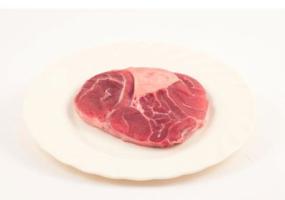 |
| Meat |
|
© Biovision
|
 |
| Eggs |
|
© Biovision
|
 |
| Fish |
|
© Biovision
|
Plant sources:
Protein from most vegetable sources lack one or more essential amino acids. However, you can also obtain complete proteins from incomplete protein foods by consuming them in combination, for instance rice and beans. When combined, these two foods can provide adequate amounts of all the essential amino acids the body needs. Plant-based foods include; legumes (peas, green beans), cereals, beans, pulses, grains, nuts, seeds, soya products.
The good news is that you don?t have to consume all the essential amino acids in every meal, as long as you consume a variety of protein sources throughout the day.
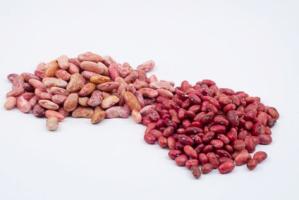 |
| Beans |
|
© Biovision
|
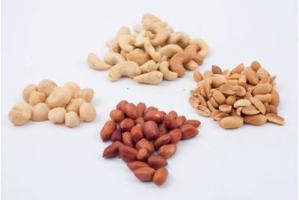 |
| Nuts |
|
© Biovision
|
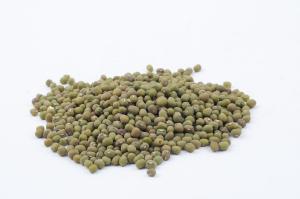 |
| Peas |
|
© Biovision
|
Vitamin and Mineral requirements
Micronutrients play a significant role in immune system functions. You can get adequate micronutrient intake through a healthy, balanced diet. Fruits and vegetables contain essential vitamins and minerals.
Vegetables
Common vegetables in Kenya are sukuma wiki, cabbages, spinach, pumpkin leaves, green peas, and indigenous vegetables
 |
| Amaranth |
|
© Biovision
|
 |
| Carrot |
|
© Biovision
|
 |
| Kale |
|
© Biovision
|
 |
| Spinach |
|
© Biovision
|
 |
| Cabbage |
|
© Biovision
|
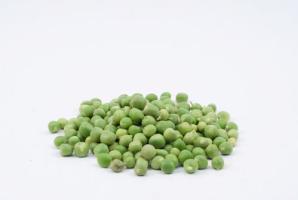 |
| Peas |
|
© Biovision
|
Fruits
Common fruits in Kenya are oranges, mangoes, pineapples, apples, water melon, avocadoes, passion fruits, paw paws ripe bananas.
 |
| Banana |
|
© Biovision
|
 |
| Mango |
|
© Biovision
|
 |
| Grapes |
|
© Biovision
|
 |
| Papaya |
|
© Biovision
|
 |
| Apple |
|
© Biovision
|
 |
| Pineapple |
|
© Biovision
|
Micronutrient supplements
Vitamins and mineral supplements may be recommended when you have a micronutrient deficiency; however they should only be prescribed by your doctor. Always consult your health care provider before taking any new vitamins or supplements. Remember that supplements may be useful but do not replace proper diet.
Water Requirements
Water is an essential nutrient and performs various functions in the body; it transports nutrients, aids in excretion of waste, assist metabolic activities, and helps regulate the body temperature. You should drink clean and safe water 6-8 glasses of water per day.
 |
| Water |
|
© Su Kahumbu, Kenya
|
Exercise and Physical activity
Exercise improves well-being. Regular exercise will help to relieve stress and stimulate the appetite. It may be that everyday activities such as cleaning, working in the field and collecting firewood and water provide enough physical activity. If your nature of work does not involve much physical activity, you should introduce an enjoyable exercise programme as part of your daily activity.
Your exercise plan should not be tiring or stressful; gentle muscle-building exercise is recommended. Walking, running, swimming or dancing are all suitable. People living with HIV/AIDS need to make an effort to find the exercise that they enjoy and that suits their situation.
Enjoy a Variety of Foods
Good nutrition means eating a variety of foods. No single food contains all the nutrients that our bodies need, except for breast milk for babies up to the age of six months. Eating a variety of different foods will supply the nutrients that are essential for your body. By taking care to choose foods that are in season and locally available, eating can be enjoyable, healthy and affordable.
Review Process
Author: Alice Ojwang Ndong, Nutritionist
Information Source Links
- Rolfes S R, Pinna K, Whitney E. Understanding normal and clinical nutrition 8th Edition. Yolanda Cossio; 2009. ISBN-13: 978-0-495-55646-6
- Kenyan National Guidelines on Nutrition and HIV/AIDS, 2006. Ministry of Health, Government of Kenya
- www.mayoclinic.com
- www.tufts.edu
- www.fao.org
